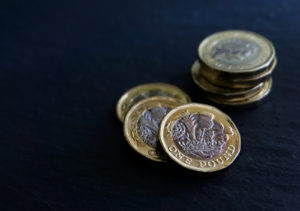
Rachel Reeves is due to announce her first budget on 30 October. It’s very likely the tricks will outweigh the treats.
Labour has said there will be no changes to VAT, income tax or employee national insurance. In politician (a particularly difficult language for non-natives) this means things like Capital Gains and Inheritance tax will very likely be altered. Changes to employer national insurance can’t be ruled out either. As far as CGT and employer NI goes, that probably involves hiking the rate. It’s not so simple for inheritance tax, which is already levied at the deeply unpopular rate of 40%. Instead, the government could seek a more creative solution.
Options include reducing the limit at which IHT kicks in, amending the seven year rule, limiting the efficiency of trusts, or even reclassifying personal pension wealth as part of an individual’s estate. And that’s not even all of the available options. Rather than hypothesising around this, let’s move on to something which we already know the details of.
The government has already announced the creation of the UK’s own National Wealth Fund. The remit of the initial £7.3bn pledged is to support Britain’s clean energy transformation and general economic growth. That’s no bad thing, but we shouldn’t forget quite how far we are behind the Norwegians in these stakes.
I’ve been a fan of Norway’s sovereign wealth project since long before scandi-chic was in vogue. Upon realising the extent of the oil revenues they were sat on, the government sought to find a long-term solution. Their premise was simple. Invest the proceeds of the oil boom into a variety of asset classes, but with a bias towards equities (currently approximately 72% of total assets). Incredibly, the result is that a country with a population of just 5.5m has a fund that is a global market colossus.
Even more incredibly, its balance sat at $0 until 1996. With the benefit of those oil inflows, in just 28 years the fund has gone from $0 to $1.8 trillion. Or the equivalent of well over $300,000 per person. That’s even after it has started making distributions to aid the government budget – including around $40bn in the pandemic. The standard rule is no more than 3% of the value is paid out in a given year.
Of course, the situation in Norway is almost unique. It has had oil revenue coming out of its ears, and finding a solution to the problem of what to do with it all is a headache chancellors across the world would be very grateful for. But that didn’t stop me scratching the ‘what if’ itch. Where would we be if the UK had done something similar?
In theory, we could have created a fund at any time. There’s no reason a government can’t make contributions into a national wealth fund while running a deficit. For example, UK government budgets shortfalls have been in the tens of billions, and that hasn’t stopped its inception. I’m also aware that the decision to spend or save has knock on impacts on welfare, the cost of government debt and numerous other factors. But for simplicity’s sake, let’s just imagine the UK government created the wealth fund in 1970 as a result of running a surplus in that year, and had a policy of topping it up with any further surplus, i.e. when tax revenue exceeds spending.
There have only been four subsequent surplus years. That may sound alarming, but it’s normal to run a small deficit, and we have had Covid and the Financial Crisis to deal with. Altogether, the cumulative surplus of these five years was £33.8bn. If left untouched, I make it that those contributions would have grown to just shy of £650bn by the end of September 2024 if the proceeds were invested into the MSCI World index.
To put that in context, that is enough to fund the NHS, Defence and Education budgets for the next two years. And we’d still have change of about £45bn, ie more than the £33.8bn that would have been invested.
Perhaps the most remarkable thing is that more than half of the end pot would have been generated from the surpluses of 1970 and 1971, which were just £1.2bn.
Or to demonstrate the power of compound returns, another way, let’s assume we’d invested little by little, regardless of if there was a surplus or not. In this case, the figures change drastically. Contributing just 0.5% of GDP every year since 1970, excluding recessions and the years since 2020, and this hypothetical fund would be comfortably over £2 trillion. Some might say this is a bit unrealistic. But given the UK has had plenty of oil reserves itself, and has benefitted from windfalls such as selling rights on mobile internet spectrum, this is perhaps not as fanciful as one might think.
While there could be some difficult personal finance tax hikes in the budget, these examples show we shouldn’t lose track of what is possible if one invests spare capital sensibly and give it the freedom to grow over time. But if we need a reminder, we can always ask the Norwegians…
George Salmon – Senior Investment Analyst

FPC24189
All charts and data sourced from FactSet
Hawksmoor Investment Management Limited is authorised and regulated by the Financial Conduct Authority (www.fca.org.uk) with its registered office at 2nd Floor Stratus House, Emperor Way, Exeter Business Park, Exeter, Devon EX1 3QS. This document does not constitute an offer or invitation to any person in respect of the securities or funds described, nor should its content be interpreted as investment or tax advice for which you should consult your independent financial adviser and or accountant. The information and opinions it contains have been compiled or arrived at from sources believed to be reliable at the time and are given in good faith, but no representation is made as to their accuracy, completeness or correctness. The editorial content is the personal opinion of George Salmon, Senior Investment Analyst. Other opinions expressed in this document, whether in general or both on the performance of individual securities and in a wider economic context, represent the views of Hawksmoor at the time of preparation and may be subject to change. Past performance is not a guide to future performance. The value of an investment and any income from it can fall as well as rise as a result of market and currency fluctuations. You may not get back the amount you originally invested. Currency exchange rates may affect the value of investments.
